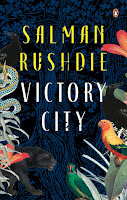God’s Little Soldier
Kiran Nagarkar is the writer of one of my all-time favourite novels – Cuckold. And he returns 10 years later to write another. It’s almost as big, the writing still makes for an un-put-down-able book, it has the all the makings of a classic. Yet…
GLS is the story of two brothers – Zia and Amanat. Brought up in an educated, liberal Muslim household in Bombay, their lives end up drawing very different trajectories. Both are geniuses in their own ways. Zia is a whiz kid in maths and his brother has always been good with the written word and has an aptitude for architecture that he inherits from his dad. But while Zia, in spite of his liberal Western education turns to extremism in the form of first Islamic terrorism and then Christian fundamentalism, Amanat remains the liberal, questioning, doubting voice.
Zia’s life’s journey takes him to Cambridge, discovering Allah and his life’s first mission, a muffed shot at killing Salman Rushdie, escape to Afghanistan and working with the Islamic brotherhood in Kashmir and a fortuitous escape. Then he inexplicably finds Jesus, joins a monastery and then finds another mission – to rid the world of the sin of abortion. He begins to secretly lead a militant pro-life movement and in trying to fund it, leads himself into a quagmire he cannot get out of.
Amanat on the other hand, asthmatic, troubled, is forced to stay on in India, bear the brunt of the dwindling of his family’s fortunes and his mother’s profligacy, finds love in childhood friend Sagari, withdraws from it and finds it again, just as he withdraws from his original love architecture, and finds it again after his father’s death. All the while, he mirrors the absolute-ness of Zia with his self-doubts and refusal to be tied down by ideology. When he writes to Zia, “How lucky you are, Zia. You never have doubts nor are you ever confused. You know what’s right and what’s wrong. There is only one point of view: yours.”, Amanat is echoing the essential difference between the two brothers.
While the two brothers seem to be Nagarkar’s way of putting forward two opposing points of view, it is clear whose side he is on. Which is where I think the book fails. Zia is not real, at least not to me. In playing him as the face of fundamentalism (be it Islamic or Christian), Nagarkar places too huge a load on the character. Zia represents a mindset of extremism and Nagarkar seems to say that there are some people who are born this way. That it does not matter whether you are educated in a madrassa or Cambridge, if you are of this mindset you can end up being an extremist. But if a writer is trying to fit a whole theory on a character, you need to do it with a bit more skill I think. Nagarkar does not resort to Rushdie-like tactics to achieve the objective of fitting an idea into a story. He does not use magic-realism to achieve that larger than life allegorical feel…but he does not achieve it with his style of realistic writing either. So Zia seems like a caricature, an unreal genius who can’t help but spiral his world into violence because of who he is.
Amanat is real. But that’s you and me, the middle-of-the-road guy who knows the folly of set viewpoints and hence is always in doubt. It is clear that it is Amanat and to some extent the Abbot of the monastery that Zia turns to in his search for Jesus, that exemplify Nagarkar’s stand. A viewpoint that says that god is in forgiveness, in an acceptance of weakness rather than punishment, that he or she is big enough to encompass multitudes, whether they be Allah or Christ or anyone or anything else.
There are parts of the book that resonate with me. Needless to say, these are parts of Amanat’s books or his letters to Zia. Amanat’s book, The Arsonist, excerpts from which are sprinkled across has some very cool lines about the oneness of the universe and god. And Amanat’s letters have some lines that resonate as well. In describing how truth is an over-estimated virtue, he writes “Perhaps the truth, whatever that is, should be reserved for bigger occasions, like looking steadily and unflinchingly at oneself and then having the courage to act on it.” And finally, it is as if even Zia gets what Amanat has been trying to drill into him all his life through his letters and his books. His dying thought is “There’s only one God and her name is Life. She is the only one worthy of worship. All else is irrelevant.” This is ultimately what Nagarkar has been trying to say through the 550 pages of his novel. It’s a timely thought, one that is pretty apt for our times. One only wishes he was able to bring alive an opposing point of view just as well.



